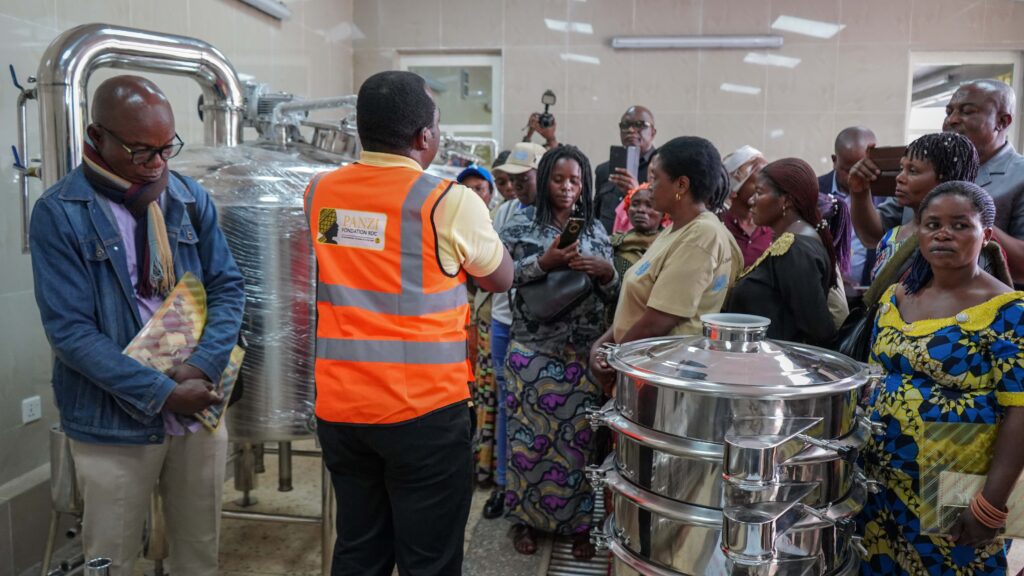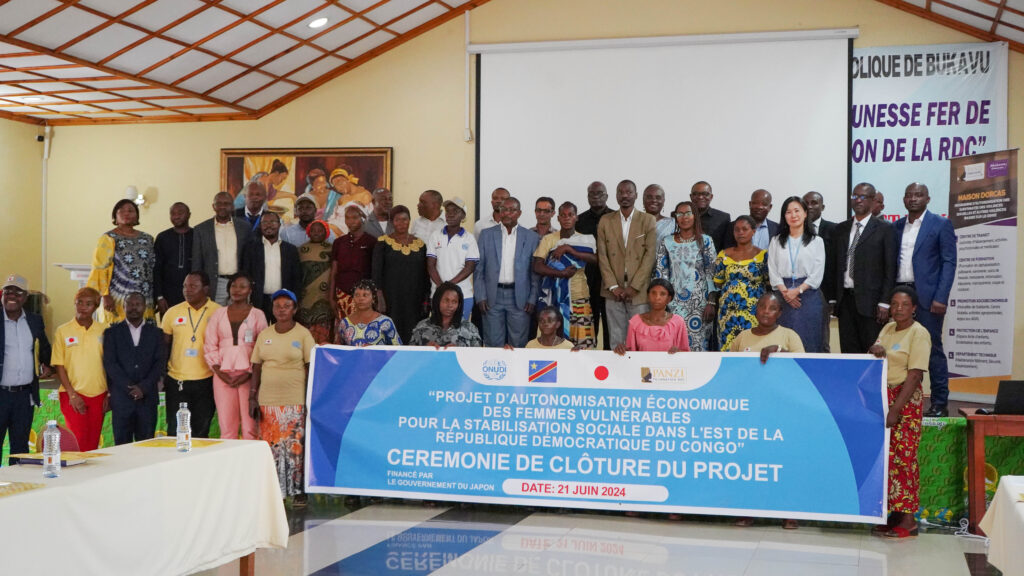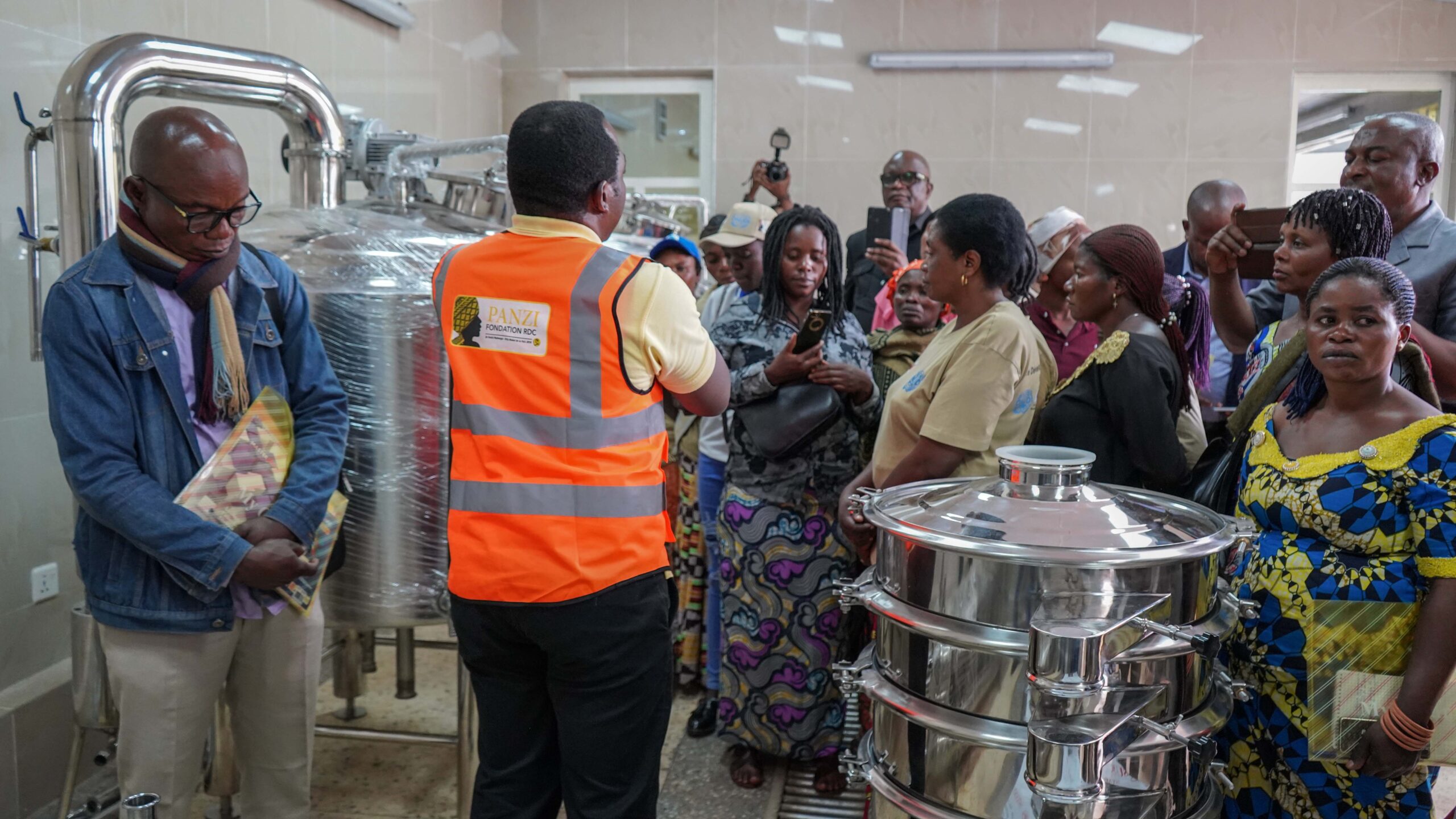

A bioethanol production plant was inaugurated this Friday, June 21, 2024 by Dr Denis Mukwege’s Panzi Foundation in Bukavu. This innovative approach will enable medical facilities in eastern DRC to source high-quality 96% bioethanol and hydroalcoholic gel locally, putting an end to costly imports of this product.
Bioethanol is an essential element used in health facilities to manufacture medical alcohol and disinfectants.
By allocating fields to women to grow sugarcane, the raw material needed to manufacture this product, the inauguration of this plant marks a significant step forward in the fight for women’s empowerment. It also underlines the commitment of Dr Denis Mukwege, Nobel Peace Prize 2018, to this cause.
This factory, built with the support of the Japanese government through the United Nations Industrial Development Organization (UNIDO), represents much more than just industrial representation; it embodies the hope and resilience of these women as they strive to create a better future for their families. Congolese women, as pillars of their communities, are at the heart of this approach, and their contribution to bioethanol production is a concrete example of their strength and determination.
In addition to the fact that most of the raw materials and other inputs for this production plant will be supplied by the women who will benefit from the project. The crucial importance of these fields for these women, most of whom were once idle, must be emphasized.
300 women grouped into 12 AVEC (Associations Villageoises d’Epargne et de Crédits) currently have 2.5 ha of land with sugarcane seedlings. 10 ha will be available in the medium term.
Through Panzi Foundation and Panzi Hospital, Dr Denis Mukwege continues to promote these essential values, in an environment where the general inversion of the value chain is the rule.
The city of Bukavu, the beneficiary of this production, has a demand for 77,376 liters of methanol per year. Initial production at the Panzi Bioethanol plant will be 52,812 liters of alcohol and 6,048 liters of disinfectant per year, i.e. 72% of demand in Bukavu.




